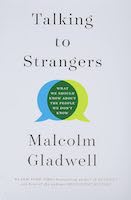SEA Supporting Statement Regarding ASA/AUA Statement on Sexual Harassment in Academic Medicine
We were astonished by the findings in the AAMC's "State of Women in Academic Medicine 2023-2024" report, that put forward the progress and persistent challenges in gender equity, particularly in our specialty. We commend our national societies who support women leaders in succeeding in their academic trajectory. The AAMC report shows the increase in the percentage of women chairs in academic anesthesiology departments from 13% in 2004 to 18% in 2024. We also recognize the narrowing of the compensation gap with women earning $0.94 for every dollar earned by their male colleagues. However, neither of these accomplishments are sufficient, and we must strive to break the “glass ceiling” and support gender equity at all levels.


 Natalie Koons, DO
Natalie Koons, DO
 Dr. Monica Arndt
Dr. Monica Arndt


 Let’s keep this short & sweet! We want to provide SEA members with quarterly newsletters that contain educational, inspiring, and interesting pieces. If you have an idea for a submission, or an author, and want to share, please email
Let’s keep this short & sweet! We want to provide SEA members with quarterly newsletters that contain educational, inspiring, and interesting pieces. If you have an idea for a submission, or an author, and want to share, please email  Growth and Renewal in 2023
Growth and Renewal in 2023 Health Volunteers Overseas (HVO) is pleased to announce Jo Davies, MBBS, FRCA is a recipient of the eleventh annual HVO Golden Apple Award. As part of its World Health Day observances and in celebration of World Health Worker Week, HVO recognizes the extraordinary contributions of HVO members, volunteers and supporters to HVO’s mission, organization and/or project sites. Each individual honored with this award has demonstrated an impressive commitment to HVO’s mission to improve global health through the education, training, and professional development of the health workforce in resource-scarce countries.
Health Volunteers Overseas (HVO) is pleased to announce Jo Davies, MBBS, FRCA is a recipient of the eleventh annual HVO Golden Apple Award. As part of its World Health Day observances and in celebration of World Health Worker Week, HVO recognizes the extraordinary contributions of HVO members, volunteers and supporters to HVO’s mission, organization and/or project sites. Each individual honored with this award has demonstrated an impressive commitment to HVO’s mission to improve global health through the education, training, and professional development of the health workforce in resource-scarce countries.

